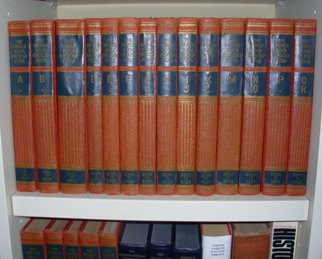One of my earliest memories of school days was reading and working on reports from the World Book Encyclopedia.

These hard-bound, red-covered books came in a 19-volume set produced by the Quarrie Corporation. The copyright on my edition is 1941, but the copyright dates back to 1917!
These highly-readable, illustrated books were the primary source for any and all questions and reports related to school and life. Asking my mother about a given subject, she would often say, “Look it up!”
In volume five, page 144 I found “Ethics”:
“Questions of right and wrong are woven into all conversation; they are as close to our life as the air we breathe.
“We ask: Should I buy this expensive coat? Is it right for Harry to go with the boys with whom he associates? Should Mary stay out of school to work? Each of these questions includes the problem of right and wrong. Problems of this nature are constantly confronting us in the home, in the school, in society, and in business. How may we find the right answer to them? What should constitute the underlying principles by which the moral problems of our lives and of society are solved?”
Clearly written for young minds, the World Book made the complex a little easier to grasp due, in large part, to their direct and positive language aimed at both adults and children.
Examples:
“The child is a creature of impulse and often needs help in gaining that self-control necessary to a stable character. ‘I didn’t think’… is his frequent excuse when his acts are questioned. At this stage he needs guidance rather than censure.
“It is by the choices and acts of everyday life that character is formed, more than by great crises.
“Let the atmosphere of the home and the school be such as to strengthen all right impulses and higher emotions.”
Without my knowing at the time, this point had made a particular impact:
“Make use of stories and the great characters of literature as incentives to a noble character. The myth and the fairy tale, when wisely chosen, leave the child with the desire to emulate the good and beautiful character that dominates the story.”
I always remember being told a good story and the particular principled point, which is probably why I was led to research and write my last book detailing ethical stories, What Do You Stand For?
Although it sometimes reflected a religious link, the point of positive examples by others still carries weight today.
“Train for active life; strength of character is seldom developed in seclusion. The Great Teacher prayed, not that His disciples might be taken out of the world, but that they might be kept from the evils of the world, that they might discharge their duties in mingling with men, and at the same time be unscathed by the temptations and evils with which they were surrounded.”
Comments










